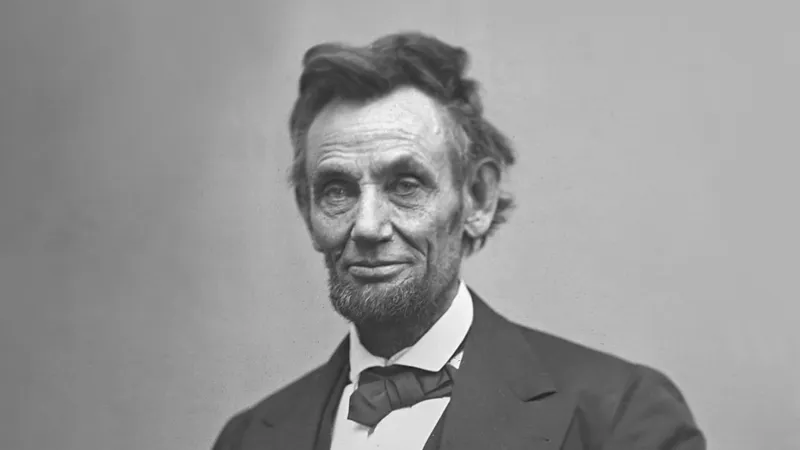Abraham Lincoln, the 16th President of the United States, stands as tallest in history as a leader who navigated a nation through its darkest hour: the Civil War. But beyond the battlefield victories and the signing of the Emancipation Proclamation, leadership qualities of Abraham Lincoln and his true legacy lies in his remarkable leadership qualities.
Let’s delve into the man behind the beard and explore the traits that made him not just a president, but a leader of exceptional caliber.
1. The Power of Words: A Master Communicator
Lincoln wasn’t your typical politician. He wasn’t known for fiery speeches or bombastic pronouncements. Instead, his strength resided in his masterful use of language. The Gettysburg Address, a two-minute speech delivered at a cemetery dedication, is a testament to his power. With simple, yet profound, words, Lincoln linked the sacrifice of soldiers to the preservation of a nation “conceived in liberty, and dedicated to the proposition that all men are created equal.” His eloquence wasn’t for showmanship; it was a tool to unite a divided nation, to inspire hope, and to remind them of the ideals they were fighting for.
The Clash of Personalities between Gandhi and Jinnah that Shaped a Nation
2. The Team of Rivals: A Genius for Collaboration
Lincoln wasn’t afraid to surround himself with brilliant minds, even if they disagreed with him. He famously formed a cabinet – his “Team of Rivals” – comprising some of his most vocal political opponents. This wasn’t a display of weakness, but a strategic move. He recognized the value of diverse perspectives and the strength that comes from having talented individuals challenge and refine his own ideas.
3. The Strength of Humility: A Leader Who Listens
Lincoln wasn’t a know-it-all. He understood the importance of listening to others, from his advisors to ordinary citizens. He held regular “Soldiers’ Homes” meetings, where he met with wounded soldiers and listened to their experiences. This act of humility not only provided valuable insights into the war’s human cost but also fostered a sense of connection and respect between the leader and those he led.
Peace vs. Power: 05 Leadership Qualities of Gandhi and His Daring Experiment
| Age | Event | Description |
|---|---|---|
| 20 | Enters Politics | Wins election to Illinois state legislature |
| 26 | Marries Mary Todd | Starts a family |
| 30 | Becomes a Leading Lawyer | Builds a reputation for his legal skills in Illinois |
| 37 | Serves in U.S. House of Representatives | Advocates against the expansion of slavery |
| 46 | Loses Senate Bid | Delivers the House Divided speech, becoming a national figure |
| 51 | Elected President of the United States | First Republican president |
| 52 | Civil War Begins | Faces the daunting task of preserving the Union |
| 53 | Emancipation Proclamation | Declares slaves in Confederate states to be free |
| 54 | Gettysburg Address | Delivers a powerful speech commemorating fallen soldiers |
| 55 | Re-Elected President | Secures victory for the Union cause |
| 56 | Assassinated | Shot by John Wilkes Booth at Ford’s Theatre |
4. The Steadfast Leader: Perseverance in the Face of Adversity
The Civil War was a brutal and bloody conflict. There were moments when defeat seemed imminent, and public criticism of Lincoln was relentless. Yet, he persevered. He remained steadfast in his vision for a unified nation, even when the path forward seemed shrouded in darkness.
5. The Legacy of Lincoln: A Leader for All Times
Abraham Lincoln’s leadership wasn’t about charisma or bluster. It was about integrity, communication, collaboration, and perseverance. He led by example, inspiring a nation to rise above its divisions and fight for a greater good. In a world that often craves strongmen, Lincoln’s brand of leadership – grounded in empathy, reason, and a deep respect for his fellow man – stands as a timeless example for leaders of all stripes.
So, the next time you think of Abraham Lincoln, don’t just see the top hat and the beard. See the leader who, in a time of unparalleled crisis, brought a nation back together
